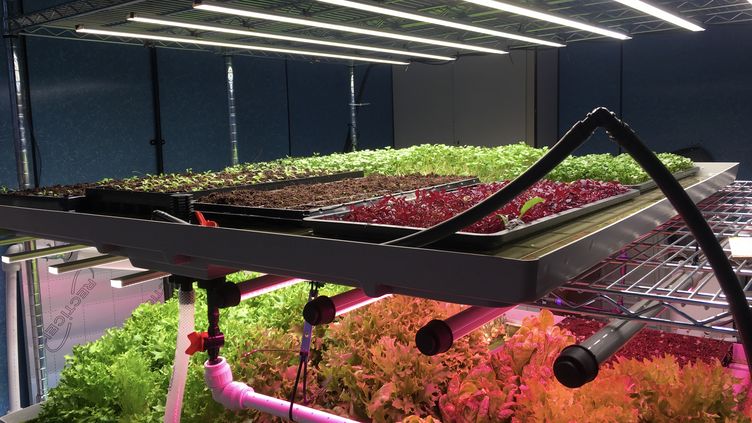
C3S: July 22 hottest day in recent history
July 22 was the hottest day on earth in recent history, according to the Copernicus ...

Sheffield University is developing a new way to create synthetic fertilizers from waste by-products, which could provide a cost-effective, low-carbon alternative to current synthetic fertilizers for the UK’s farming industry.
Researchers from the University of Sheffield’s Energy Institute and the Institute for Sustainable Food are working with Future Greens, a Sheffield-based SME specializing in controlled-environment agriculture, on a research project designed to improve the sustainability of growing food.
Unlike traditional farming systems that grow crops in soil, this type of agriculture uses vertical water-based hydroponics systems that are totally reliant on the application of synthetic fertilizers to supply nutrients essential for plant growth.
Using hydroponics to quickly grow food like leafy greens has been a fast-growing industry in the UK commercially, as well as for individual homeowners with limited space and resources to grow their own food. However, high energy prices and volatile fertilizer markets have put this emerging industry at risk.
Notably, the cost of synthetic fertilizers, responsible for a significant portion of global energy consumption, has risen by 139 percent within the last year in Britain. The sourcing of these fertilizers has fast become an economic and environmental concern, with production also responsible for 1-2 percent of global energy use.
This new University of Sheffield project aims to combine food and energy research to advance sustainable farming practices, enabling farmers to grow plants like lettuce and spinach in a more sustainable way by developing an alternative sustainable process for the production of synthetic fertilizers.
This process will convert the by-products from anaerobic digestion – a technology which turns waste farm products like manure into energy – into a high-quality, water-soluble fertilizer suitable for food crops. This system, which combines biogas energy production with the conversion of waste products, fosters a more sustainable, circular and resilient system for farming.
Successful development of this innovative idea would provide a cost-effective, low-carbon alternative to current synthetic fertilizers for the UK’s farming industry, and would result in additional revenue for anaerobic digestion plants. It would also contribute towards the UK’s goal of a circular phosphorus economy, and build resilience in the UK food industry.
Dr Davide Poggio, Research Associate at the Energy Institute at the University of Sheffield, said of the project “This project represents a novel, systemic approach to urban biowaste management. By integrating biogas technology with vertical farming, we aim to efficiently recycle nutrients and recover energy within urban settings, and enhance the security and sustainability of key hydroponic crops.”
Alexander La Fleur from Future Greens, said “Working with the university is really exciting for us, since graduating two years ago it’s nice to be back and tap into the valuable expertise. The grant presents a really promising opportunity to find a solution to the environmental and economic challenges facing the fertilizer industry.”
July 22 was the hottest day on earth in recent history, according to the Copernicus ...
Google has engaged in partnership with DHL to utilize the DHL Express GoGreen Plus service ...
Mars has announced registering a record 8% greenhouse gas (GHG) emissions reduction against its 2015 ...


اترك تعليقا